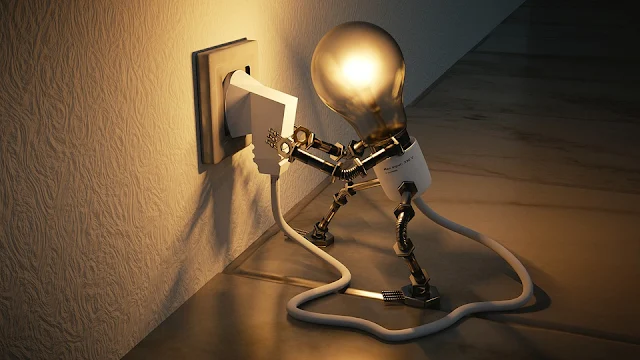Ad Code
Translate
Smart strategies for trading on crypto exchanges
October 20, 2025
Five Do’s For a Healthy Turnover That Bolsters Talent-Retention
October 20, 2025
Discover Honeybee Pharmacy (2025 Guide Important Consumer Tips)
October 14, 2025
What is Ozempic (semaglutide)? (Updated in 2025)
January 30, 2025
How To Find Suitable Properties In Cyprus?
October 20, 2025
Posture Bra: Improving Back Support and Comfort
October 20, 2025
10 Effective Strategies to Improve Domain Authority of Your Website
October 20, 2025
9 Safety Tips When Handling Electrical Equipment
Khabza Mkhize
July 20, 2024
Whether you’re a licensed electrician, an electrician’s apprentice in training, or just the handyman of your home, you should subscribe to one universal truth about working with electricity: it can be extremely dangerous.
Any electrical system has the potential to wreak harm on an approaching user. What’s worse, electrical sparks can fly off from anywhere, be they from an exposed wire or from a faulty piece of equipment. Even your body in itself is a natural conductor of electricity. If you can’t afford sufficient protection while doing electrical work, you risk incurring shocks or burns. See also Wallpaper Stripper review High steam levels for quicker stripping.
That said, it may be good to establish ground rules for fostering a safe, productive, and shock-free working environment.
Here are nine helpful tips for anyone looking to handle electrical equipment.
- Mind the condition of your tools. Proper tools are your lifeline when doing electrical work. Ensure that each tool you bring to the work site is in tip-top shape. Don’t be lazy about switching or repairing tool handles, tool casings, or trigger locks once they look worn out.
- Don’t touch someone else’s tools. Always secure permission to touch someone else’s gear, and be careful with it even then. If the equipment is not yours, treat it as charged.
- Wear the proper clothing for electrical work. When it’s time for electrical duty, don’t neglect to equip safety workwear clothing. Your workwear ensemble can include an antistatic jacket, shirt, or overalls, as well as electrical personal protective equipment (PPE) such as gloves, goggles, helmets with visors, and rubber-soled boots for using power tools.
- Foster a clean, dry, and organized working environment. Ensure your work site and workstations are free of mess, clutter, leakages, or tangled wire, as these may lead to a severe accident. Moreover, you should keep electrical equipment out of cold spaces to prevent condensation or cold-induced strain.
- Counter dampness and moisture. Keep your hands completely dry while you work with circuits, and never touch a piece of electrical equipment with wet hands. In addition, take extra care if you work near a damp area, such as a body of water. You can install Ground Fault Circuit Interrupters (GCFIs) to mitigate the higher risk of electric shock.
- Stay away from faulty equipment. Avoid devices whose electrical cords sport damaged insulation, frayed ends, or broken plugs. If these problems are not immediately seen, an instrument produces a “tingling” sensation when held, unplug it, and schedule it for examination and repair.
- Check all equipment to see if it’s de-energized. Test it first with an electrical tester to confirm the object is duly de-energized. By all means, do not work on energized electrical circuits or equipment.
- Treat spillage with due caution. If you encounter sudden spillage at the work site, such as a water leak, don’t try to approach any affected wires or outlets yourself. Shut off the power from the circuit breaker or the main switch, safely unplug the cords, and ask for additional help cleaning up.
- Be observant of signage. The signage that accompanies electrical equipment exists for a reason. If you see any signage denoting something as an electrical hazard (such as “Shock Risk”), take note and observe cautious behavior.
An electrician’s job is a noble one. Their taming the “spark” keeps personnel safe, comfortable, and capable of fulfilling everyday tasks. If you’re in the line of electrical work, supplement your talent for wires and circuitry with the best safety practices.
Featured Post
DL Mining Launches Ethereum Contract Participation Service, Helping Users Earn $2K Stable Daily Returns
Zizo Gala-Mkhize-
October 20, 2025
Soapie Teasers
Sister Sites
Most Popular
List of 6,000+ Dofollow Commentluv Blogs FREE (Updated 2025)
January 16, 2025
Five Do’s For a Healthy Turnover That Bolsters Talent-Retention
October 20, 2025
How To Choose The Right Place For A Winter Campsite
March 06, 2023
Popular posts
List of 6,000+ Dofollow Commentluv Blogs FREE (Updated 2025)
January 16, 2025
Five Do’s For a Healthy Turnover That Bolsters Talent-Retention
October 20, 2025
How To Choose The Right Place For A Winter Campsite
March 06, 2023
Footer Menu Widget
Created By Blogspot Theme | Distributed By Gooyaabi Templates


Social Plugin